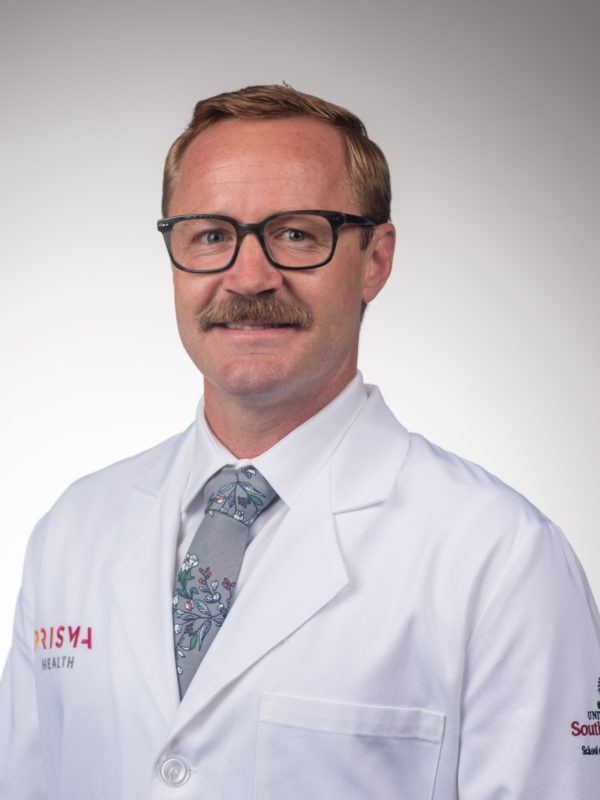Why is heartburn worse at night?
If you suffer from bouts of heartburn, bedtime can be the worst. As soon as you lie down and try to relax, you feel that burning sensation in your chest and a sour taste in your mouth. Why is heartburn worse at night? Brian Hodgens, MD, explained why heartburn is worse at night, how gravity is to blame and what can be done to relieve and prevent these flareups.
What causes heartburn and why is heartburn worse at night?
As you eat, your stomach produces stomach acid to digest food. If acid goes backwards through the gastrointestinal tract and up into the esophagus, this is known as reflux or heartburn.
Dr. Hodgens said it’s completely normal to have reflux from time to time, especially after large meals. “When we lay down, gravity is no longer pulling these contents toward the stomach and small intestine, but it is allowing them to reflux back into the esophagus.”
If the problem happens often, there could be an issue with the muscle at the bottom of the esophagus, called the esophageal sphincter, which prevents the stomach’s contents from working its way back into the esophagus.
“Patients with a loose sphincter at the bottom of their esophagus, or an anatomic abnormality called a hiatal hernia, will feel more reflux or regurgitation because there is not a normal barrier between the stomach and the esophagus,” he said.
What can you do to prevent acid reflux at night?
If your heartburn is worse at night, there are a few things you can do to lessen the discomfort.
First, try to avoid the foods that trigger your reflux. The most common culprits are spicy foods, tomato-based foods, chocolate and red wine.
“It is really patient specific,” Dr. Hodgens said. “Some people get heartburn with fruit, some get it with chocolate, so we try and identify triggers and limit those foods.”
Other lifestyle modifications include trying to watch how much and when you’re eating. For instance, eat dinner a little bit earlier in the evening. Also, sleep with a couple of pillows under your head or use a wedge pillow so that you are somewhat upright to minimize heartburn symptoms.
“We encourage patients to eat well, exercise and overall keep themselves at a healthy weight because a higher BMI can predispose people to having reflux,” Dr. Hodgens said.
Does apple cider vinegar work for acid reflux?
“Everything is very patient specific,” Dr. Hodgens said. “People have come in with home remedies that work for them that don’t always work for everybody else. Some patients have said that baking soda helps them when they take it in small amounts with water.”
Typically, reflux is treated with medications. The most common prescription medications are proton pump inhibitors, which go by the brand names Nexium (esomeprazole) and Prilosec (omeprazole). These medications help to reduce the amount of stomach acid produced so that when stomach contents come back up into the esophagus, they are not acidic, and they do not burn or cause the symptoms typically associated with reflux.
“On top of that, I have had patients do well taking antihistamine medications, such as Pepcid, or other antacid medications such as Tums or Maalox,” Dr. Hodgens said.
Is it safe to take medications like Prilosec and Nexium every day?
“These are good medications,” Dr. Hodgens said. “They have been around for decades, and they do work well for GERD or reflux disease with patients taking them daily for many years. There have been some recent studies that have correlated certain long-term side effects, such as osteoporosis or kidney disease or dementia, but a lot of these studies have not shown a direct causal relationship.”
Patients can discuss these potential risks with their doctors.
Are there other treatments for acid reflux besides medication?
Most patients will see their primary care provider or a gastroenterologist who will usually try increasing the medication dose or changing or adding medications first.
“Once we have maxed out these medications and patients continue to have symptoms that are impacting their quality of life, then we typically move towards a workup where we really get a better look at the esophagus and the stomach,” Dr. Hodgens said.
This can include upper endoscopy, or imaging studies, or acid testing of the esophagus, which provide a better idea of what is going on between the esophagus and the stomach. These workups are typically done by gastroenterologists or surgeon.
“Medications do work very well for a large majority of patients, and I do think they are safe to take, but there is a subset of patients who have other issues that require more intervention,” Dr. Hodgens said. “Notably, when patients have a hiatal hernia.”
A hiatal hernia occurs when the stomach has begun to push through the diaphragm and move up into the chest. This decreases or sometimes eliminates the natural barrier between the stomach and the esophagus. Patients with a hiatal hernia and ongoing symptoms despite medication may benefit from surgery to fix these hernias and augment or strengthen the sphincter between the esophagus and the stomach.
When would it be appropriate to reach out to a doctor about acid reflux?
“In general, when patients are having any symptoms, it’s always a good idea to reach out to your primary care provider,” Dr. Hodgens said. “There are other organs near the esophagus and the stomach, and sometimes the heartburn or the indigestion sensation can be caused by those other organs. So, I do think anytime patients are feeling uncomfortable and it is impacting their quality of life, it is a good idea to check with your primary care provider and see if something needs to be done.”
Find a doctor
Whether you’re looking for a primary care physician or need to see a specialist, we’re here to help with experienced, compassionate care near you.
Find a Doctor

